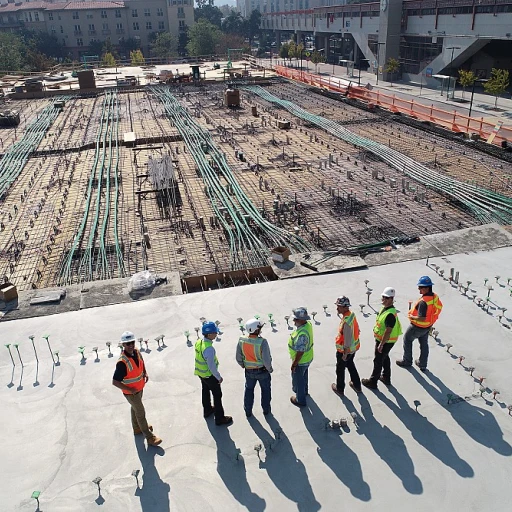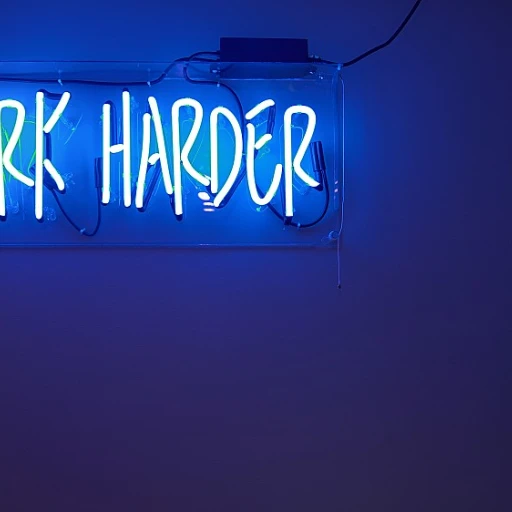
Understanding the Role of Interview Questions
Recognizing the Significance of Interview Questions
The process of asking questions during a job interview serves as a pivotal element in identifying the suitable candidate for a role. Understanding the role of interview questions can significantly enhance the efficiency and effectiveness of the hiring process. By thoughtfully crafting each question, hiring managers and teams can dive deeper into the candidates' skills, experiences, and potential compatibility with the company's needs and culture. Interview questions help not only in evaluating technical and soft skills but also in assessing problem-solving, decision-making, and the candidates' ability to work in a team. By asking questions that pertain to specific situations, like "Describe a time when you had to overcome a challenge at work," interviewers can glean insights into the candidate's past work behaviors and predict future performance. Furthermore, developing a suite of interview questions tailored to the specific responsibilities and qualifications of the job at hand will help differentiate applications by honing in on those who truly reflect the necessary experience and expertise. The questions should be designed to elucidate the candidate's management style, as well as their potential to be a collaborative team member who adds value. In order to design effective interview questions, it's vital to consider both the immediate requirements of the job and the long-term goals of the company. A strategic interview question can reveal a candidate's ability to not only fit into the team immediately but also grow within the organization over time. For further insights on structuring the interview and enhancing the overall candidate experience, check out this guide on navigating the interview process.Types of Interview Questions to Consider
Exploring Different Types of Interview Questions
When crafting interview questions, it's crucial to consider the variety of question types that can effectively evaluate a candidate's suitability for the role. Each type of question serves a unique purpose and can reveal different aspects of a candidate's skills, experience, and fit within the company culture.
Behavioral Questions: These questions help uncover how candidates have handled situations in the past, providing insight into their problem-solving and decision-making abilities. For example, asking a candidate to describe a time they overcame a challenge can reveal their resilience and creativity.
Situational Questions: These are hypothetical scenarios that assess how candidates might handle future challenges. They are particularly useful for understanding a candidate's thought process and how they might fit into the team and company dynamics.
Technical Questions: For roles requiring specific technical skills, these questions evaluate a candidate's proficiency in necessary tools and technologies. Tailoring these questions to the specific requirements of the job will help ensure candidates possess the required expertise.
Soft Skills Questions: These questions assess interpersonal skills, such as communication, teamwork, and adaptability. Understanding a candidate's management style or how they collaborate with team members can be crucial for roles that require strong interpersonal interactions.
By incorporating a mix of these question types, hiring managers can gain a comprehensive understanding of a candidate's capabilities and potential fit within the organization. This approach not only aids in making informed hiring decisions but also enhances the overall candidate experience by providing a well-rounded evaluation process.
Balancing Standard and Unique Questions
Striking the Right Balance in Interview Questions
Crafting the ideal mix of interview questions is an art that aligns with the company, the role, and the broader interview process. While you want to determine if a candidate fits the role and the company culture, balancing standard questions with unique ones can enrich the dialogue and provide deeper insights. Standard Questions Provide a Foundation- These questions help to establish a baseline for understanding a candidate’s professional skills and experience.
- Typical inquiries might include "describe a time you faced a challenge at work and how you overcame it" or "share an example of how you work within a team."
- Such questions are consistent across candidates, which ensures comparability in your evaluation process.
- Tailor these questions to uncover more about a candidate’s problem-solving or decision-making style, their management or leadership qualities, and their long term career aspirations.
- For example, you might ask "what innovative solutions have you contributed to your last team project?" or "how do you handle questions about your management style during a job interview?"
- Unique questions help to reveal a candidate’s soft skills, such as adaptability, creativity, and emotional intelligence.
Avoiding Common Pitfalls in Question Design
Key Considerations to Steer Clear of Common Pitfalls
When formulating interview questions, avoiding common pitfalls is crucial to strike the right balance and ensure a productive interview process. This stage hinges on designing questions that accurately evaluate a candidate's skills and fit within the company culture without veering into problematic areas. Firstly, while it's important to propose standard questions that align with the role, avoid relying solely on them. This practice can make it challenging to discern unique qualities and experiences that a candidate brings. Instead, complement standard questions with ones that probe the candidate's problem-solving skills, decision making abilities, and management style. For instance, asking a candidate to describe a time when they effectively managed a difficult project can reveal both technical skills and soft skills. Another common oversight is crafting questions that lead candidates or allow for rehearsed responses. Questions should encourage candidates to share genuine experiences and thoughts rather than simply delivering prepared answers. Open-ended questions help in this regard, inviting detailed responses that can provide deeper insights into a candidate's previous work or team experiences. Conversely, overly complex or ambiguous questions may confuse candidates, making it difficult for them to provide accurate or meaningful answers. Interviewers should ensure questions are clear and directly relevant to the job role. This clarity will help candidates display their understanding of the role and how they might integrate into the team. It's equally important to be aware of cultural sensitivity and legal considerations. Questions should never inadvertently discriminate or appear biased. Avoid questions that target personal attributes unrelated to job performance, as this can negatively impact both the candidate's experience and the company's reputation. Lastly, obtaining input from various team members, especially those who will work closely with the candidate, can offer diverse perspectives on the relevance of certain questions and help prevent potential issues in question design. This collaborative approach leads to a more comprehensive and equitable assessment of each candidate's fit for the company and the specific job role. When these considerations are thoughtfully integrated into the interview structure, candidates will likely feel more at ease and valued, promoting a positive interaction that reflects well on the company.Adapting Questions for Remote Interviews
Customizing Interview Questions for Virtual Interviews
In the digital age, the way we conduct interviews has significantly shifted, with remote interviews becoming a standard part of the hiring process. This transformation necessitates adapting interview questions to suit a virtual environment, ensuring they effectively assess a candidate's capabilities and fit within a team, even if they're not physically present. Firstly, technology plays a fundamental role in remote interviews. Questions should be crafted to not only gauge a candidate's skills and experience but also assess their comfort with virtual communication tools. This is crucial for roles that demand regular collaboration with remote team members. To ensure that candidates can work efficiently from a distance, consider incorporating questions that focus on problem-solving and decision-making skills in a remote setting. Candidates will need to describe a time they navigated complex issues while working remotely or share how they manage their time and prioritize tasks without direct supervision. Another aspect to consider is the company culture and how well a candidate will integrate with the team. Questions that help evaluate soft skills like communication and adaptability are particularly important in a remote context. The interviewer should look for answers that illustrate a candidate’s ability to connect with others virtually and contribute to the team dynamic. Moreover, tailoring questions to assess a candidate's experience in virtual team environments will help hiring managers determine their potential to thrive in a remote role. For instance, asking how a candidate has previously managed or participated in virtual meetings can shed light on their management style and ability to engage with remote team members effectively. Lastly, it's important to account for potential technical issues that may arise during remote interviews. Craft questions that allow candidates to explain how they handle unexpected challenges and maintain productivity, even when faced with technological hiccups. This will not only test their problem-solving skills but also give insight into their capacity for handling pressure and adapting in real-time. By adapting these interview questions, companies can ensure a thorough assessment of a candidate's suitability for remote work, ultimately leading to successful integration and long-term retention in a virtual environment.Evaluating Candidate Responses Effectively
Assessing the Quality of Responses
Evaluating candidate responses during an interview is a crucial step in the hiring process. It's not just about the answers themselves but also about how candidates articulate their thoughts and demonstrate their understanding of the role. Here are some key aspects to consider:
- Relevance to the Role: Ensure that the candidate's answers align with the job requirements and the company's goals. This involves looking at how well they understand the role and its responsibilities.
- Problem-Solving Skills: Pay attention to how candidates approach problem-solving questions. Their ability to describe a time they tackled a challenge can reveal much about their decision-making and critical thinking skills.
- Soft Skills: Communication, teamwork, and adaptability are essential. Observe how candidates interact with hypothetical team members or describe their management style. These insights can help gauge their fit within the company culture.
Consistency and Depth of Answers
Consistency in responses is a good indicator of a candidate's reliability and honesty. Look for:
- Consistency Across Interviews: If multiple interviewers are involved, compare notes to ensure the candidate's answers remain consistent. Discrepancies might indicate a lack of transparency.
- Depth of Experience: Candidates who can share detailed experiences and specific examples tend to have a deeper understanding of their field. This depth can be a strong indicator of their potential contribution to the team.
Engagement and Enthusiasm
A candidate's enthusiasm for the role and the company can be a significant factor in the hiring decision. Consider:
- Interest in the Company: Candidates who ask insightful questions about the company and its future show genuine interest. This can be a sign of their long-term commitment potential.
- Passion for the Role: Look for candidates who express excitement about the work and the opportunity to contribute. Their enthusiasm can be contagious and beneficial for team morale.
By focusing on these aspects, hiring managers can make more informed decisions, ensuring that the selected candidates will not only fulfill the job requirements but also thrive within the company culture.













